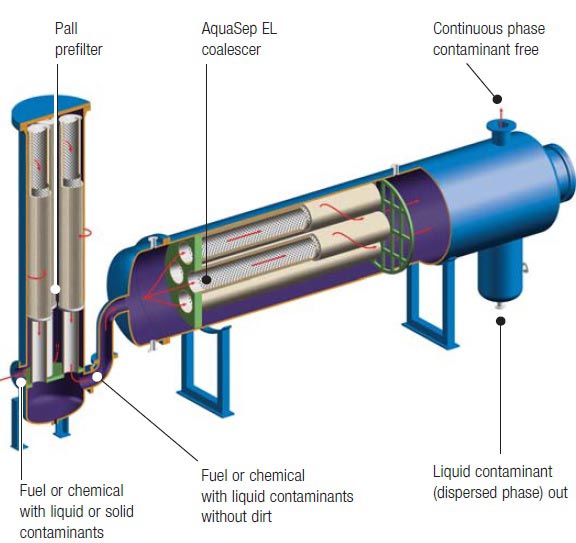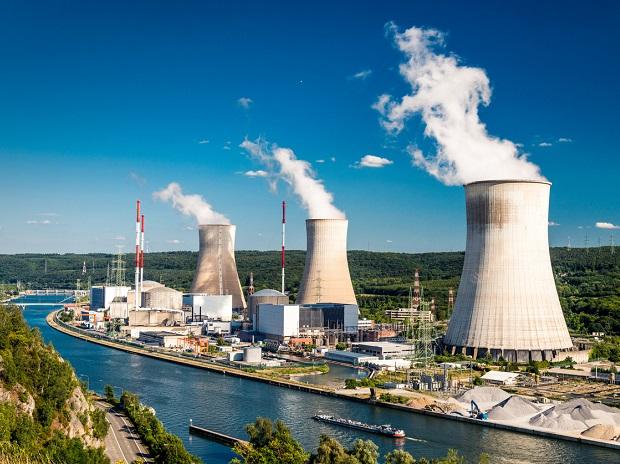Industrial Separation and Coalescing Filter: A Detailed Analysis
Date: 2024-12-18 Categories: Industry information Views: 219
Industrial separation and coalescing filters are crucial components in a wide range of industrial applications, particularly in processes where the purity of liquids and gases is of utmost importance. These systems are designed to address two primary objectives: removing solid contaminants from fluids and combining smaller liquid droplets into larger ones for efficient phase separation. In this detailed analysis, we will explore the mechanics, applications, and significance of these filters across various industries.
The Mechanics of Separation and Coalescing

At the core of the industrial separator is the filtration process, which focuses on isolating solid particles from a liquid or gas. This is particularly important in industries where even minute impurities can cause significant damage to equipment or compromise product quality. The filter typically uses a combination of physical barriers, such as mesh or porous media, to trap contaminants as the fluid flows through.
On the other hand, the coalescing filter serves a complementary function, designed specifically to target smaller liquid droplets that are dispersed within another liquid or gas phase. These droplets, often present in emulsions, are captured by the coalescing material and combined into larger droplets. Once larger, these droplets can more easily be separated from the gas or liquid stream, ensuring that unwanted water or oil is effectively removed from the system.
The synergy between the separator and coalescing filter enables a highly efficient purification process, especially when dealing with complex mixtures that involve both particulate matter and emulsified liquids. In this way, the system ensures the removal of multiple contaminants at once, contributing to higher system reliability and reduced maintenance.
Applications Across Industries
Oil and Gas Industry

In the oil and gas sector, the industrial separator and coalescing filter are often used to purify crude oil and natural gas. The separator helps remove solid particles like sand, rust, and metal fragments, which could otherwise damage pumps, pipelines, and refining equipment. The coalescing filter plays a pivotal role in removing water and fine oil droplets, which, if left unchecked, could affect the quality of the crude oil or interfere with the refining process. In this context, the filters contribute significantly to the overall efficiency of the extraction, transportation, and refining processes.
Chemical and Petrochemical Industries

Chemical and petrochemical plants require the highest level of filtration and separation to prevent contamination during the production of chemicals, fuels, and other valuable products. A well-functioning separator ensures that solid impurities such as dust or metallic debris do not enter sensitive processes. The coalescing filter is also essential in these industries for preventing the unwanted presence of water and emulsified substances in solvents and other chemicals. By improving the purity of the chemicals, these filters contribute to more consistent product quality and reduce the risk of costly production errors.
Power Generation

In the power generation industry, particularly in combined cycle plants, industrial separators and coalescing filters help ensure the purity of both the fuel and cooling water. These systems protect critical components such as turbines and boilers by removing contaminants that could lead to corrosion or performance degradation. The filters are also employed in the cooling water systems to ensure that no particulate matter enters heat exchangers, which could cause blockages or inefficiencies.
Aerospace and Pharmaceuticals

For industries that require extremely high levels of purity, such as aerospace and pharmaceuticals, these filtration systems are indispensable. In the aerospace industry, contaminants can severely affect the performance and safety of aircraft, so ensuring the purity of fuel and hydraulic fluids is essential. Similarly, in pharmaceutical manufacturing, any particulate or microbial contamination in drugs or active ingredients can render the products unsafe for consumption. The industrial separator and coalescing filter work to remove these potential hazards, contributing to the safety and quality of the final product.
Design and Durability
The materials used in the construction of industrial separators and coalescing filters are critical to their performance and longevity. Most filters are made from high-quality stainless steel or specialized alloys that can withstand harsh operating conditions, such as high temperatures, aggressive chemicals, and high-pressure environments. These materials ensure that the filters maintain their structural integrity over time, even in the most demanding environments.
In addition to materials, the design of the filters plays a crucial role in determining their efficiency. Features like multi-stage filtration, self-cleaning mechanisms, and flow-optimized configurations allow these systems to handle a wide range of fluid types and flow rates. Advanced designs also include monitoring systems that can provide real-time feedback on filter performance, ensuring that maintenance or replacement is carried out before the system fails.
Economic and Operational Impact
The economic value of industrial separators and coalescing filters extends beyond their initial cost. By maintaining the purity of fluids and gases, these filters reduce the likelihood of system failures and extend the life of expensive machinery. Regular maintenance and the use of high-quality filtration systems can minimize downtime and prevent the costly repairs that arise from equipment failure caused by contaminants.
Furthermore, these filtration systems improve the overall efficiency of industrial processes. For example, in the oil and gas industry, removing water and solid impurities from crude oil before it enters the refining process can lead to higher-quality end products, less waste, and a more efficient refining process. In power plants, preventing contaminants from entering turbines and boilers can lead to lower fuel consumption and increased energy output.













